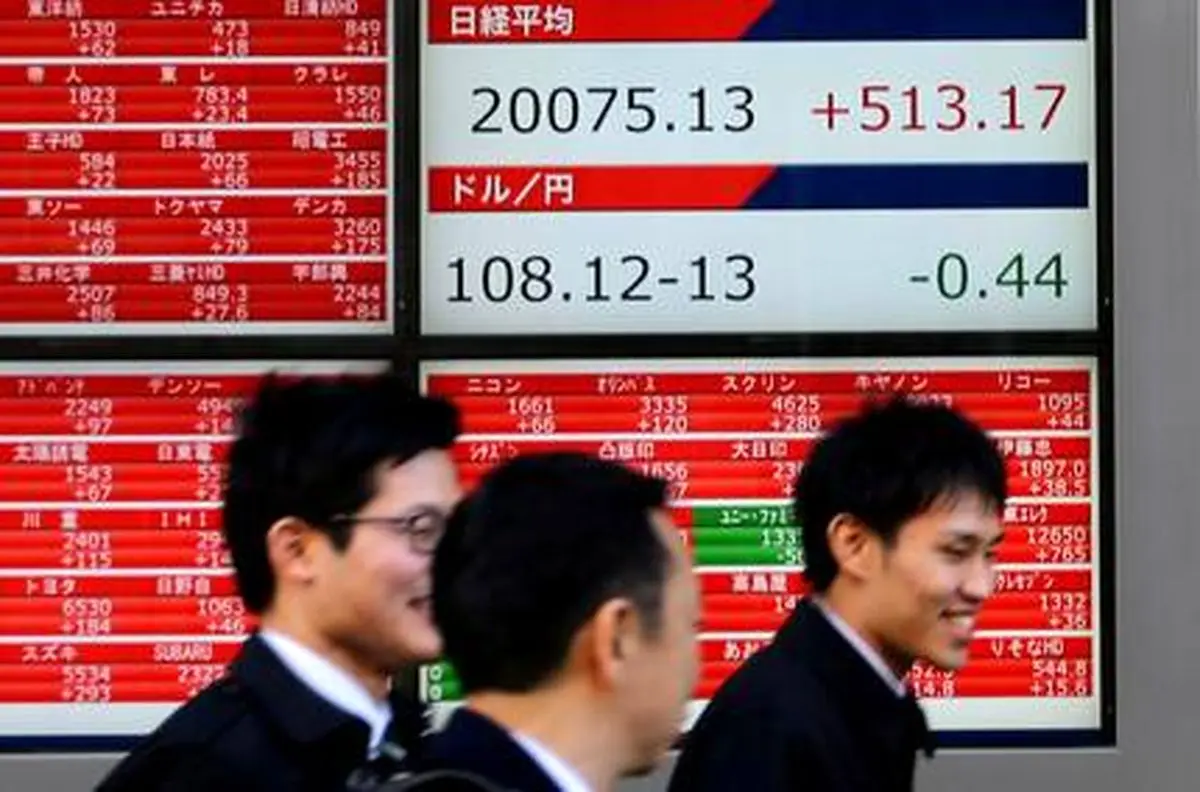Asia shares weaker on lockdown worries, banking sell-off

Asian shares were broadly weaker Tuesday as possible delays in expanded U.S. stimulus and concerns about fresh pandemic lockdowns in Europe dented the recent positive sentiment towards global equity markets.
Hong Kong shares of HSBC 0005.HK and Standard Chartered 2888.HK weakened a further 2%, as global banking stocks remained under intense pressure on reports about financial institutions allegedly moving illicit funds.
British lenders HSBC and StanChart were among global lenders named as having transferred more than $2 trillion in suspect funds over nearly two decades.
MSCI's broadest index of Asia-Pacific shares outside Japan .MIAPJ0000PUS was down 0.68%.
“Markets globally have run hard on the weight of huge liquidity, so it’s not surprising to see a pullback in some valuations,” said James Rosenberg, an EL&C Baillieu advisor in Sydney.
“Add in uncertainty with US elections and another COVID wave in Europe ... it unsettles investors.”
“A lot of investors felt the market had got ahead of itself given the long list of things to worry about,” said Ord Minnett advisor John Milroy.
A burst of positive sentiment emerged briefly in China as the blue-chip index .CSI300 traded higher but the market then again slipped into negative territory.
Japanese markets were closed for a public holiday.
Early trading indicated further selling pressure on Wall Street on Tuesday, with S&P 500 futures down 0.18% in early Asia and Nasdaq 100 futures off 0.29%.
“We can’t see any positive news on the horizon in the near-term for the markets to rebound,” said Steven Leung, executive director for institutional sales at Hong Kong brokerage UOB Kay Hian.
Overnight on Wall Street, the Dow Jones Industrial Average .DJI fell 1.84%, the S&P 500 .SPX lost 1.16%, and the Nasdaq Composite .IXIC dropped 0.13%.
U.S. stocks have tumbled over the past three weeks as investors dumped heavyweight technology-related shares following a stunning rally that lifted the S&P 500 and the Nasdaq to new highs.
JPMorgan Chase & Co JPM.N and Bank of New York Mellon Corp BK.N fell 3.1% and 4.0%, respectively, on Monday.
The coronavirus also remains front and centre of investor concerns.
New pandemic measures in the UK set off declines in airline, hotel and cruise companies in both European and U.S. markets, spurring fears about further restrictions.
The Telegraph newspaper reported Prime Minister Boris Johnson will encourage Britons on Tuesday to go back to working from home. Any fresh coronavirus restrictions would threaten a nascent recovery and further pressure equity markets.
Concerns are also growing about a delay in stimulus measures after the U.S. Congress has remained deadlocked for weeks over the size and shape of another coronavirus-response bill, on top of the roughly $3 trillion already enacted into law.
The death of U.S. Supreme Court Justice Ruth Bader Ginsburg appeared to make the passage of another stimulus package in Congress less likely before the Nov. 3 presidential election, sparking large declines in the healthcare sector.
U.S. President Donald Trump said he would put forward his nominee on Friday or Saturday and called upon the Senate, controlled by his fellow Republicans, to vote on confirmation ahead of the election.
The dollar held on to sharp gains made on Tuesday, with moves in Asia modest owing to a public holiday in Japan. The euro was steady at $1.1764 and the yen, which backed off a six-month high as the dollar gained, crept higher to 104.51 per dollar.
The Australian dollar slipped a fraction to $0.7221 after a senior central banker flagged the prospect of policy options including currency market intervention and negative interest rates to support the economy.
Gold fell against the rising dollar, and last traded at $1,908.76 per ounce.
In oil markets, U.S. crude rose 0.48% to $39.5 per barrel while Brent gained 0.36% to $41.59.
END
